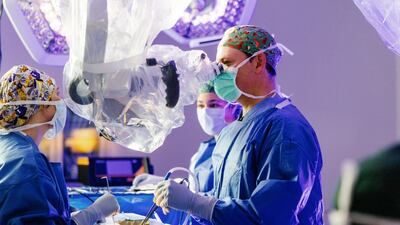Self-Powered Pacemaker Shows Promise In Pre-Clinical Study
A research team in Beijing has developed a battery-free, self-powered intracardiac pacemaker that could harvest biomechanical energy from the patient’s own cardiac motion.
The transcatheter capsule device relies on triboelectrification and electrostatic induction to pace the heart from the right ventricle. The team, led by Zhuo Liu of the Beijing Institute of Nanoenergy and Nanosystems, has successfully implanted the device in a pig and wrote about their experience in Nature Communications.
A self-powered pacemaker would have advantages over the current generation of leadless pacemakers because it would not need to be replaced when the battery runs out. “It is necessary to develop new energy supply strategies for leadless pacemakers,” the authors explained. “This device provides a promising method to harvest biomechanical energy from cardiac motion for powering the pacemaker module with the significant advantages of being leadless, battery-free, transcatheter-intervention, and lightweight.”
Carmat Plans To Bring Artificial Heart To US In Three Years
Carmat SA expects to submit a premarket approval application to the US Food and Drug administration for its Aeson artificial heart by the end of 2026 and introduce the device in the US in 2027.
The company recorded €2.8m in 2023 revenue and expects sales to exceed €14m in 2024, putting Carmat on pace to break even by 2027 when it launches Aeson in the US, according to a 15 January announcement.
To achieve this target, the company will have to secure around €50m in financing over the next year and plans to launch a capital “increase in the very near future.”
Aeson is a total artificial heart for people with end-stage biventricular heart failure. It earned a CE mark in 2021 and 41 hospitals in 12 countries are trained to implant the device. (Also see "Carmat To Launch Total Artificial Heart In Early 2021" - Medtech Insight, 23 December, 2020.)
The device is currently indicated as a bridge to transplant for people with biventricular heart failure, but Carmat expects it to eventually be a destination therapy for heart failure patients ineligible for a transplant.
Aeson relies on computer control to manage differentiated blood flows between the right and left sides of the heart. So far, the device’s safety is superior to that of all other comparable devices, Carmat claims. The company recently upgraded Aeson’s software so that it can automatically adapt to any potential malfunction of the device’s electronic components.
Adoption of Aeson has accelerated since the company launched it commercially in Europe in 2021. Of the 50 patients treated with Aeson so far, 17 were in 2023, and 11 of those were in the fourth quarter of 2023. The company also recently announced first implantation of the Aeson heart in a patient suffering from a cardiac tumor.
The 17 patients who received Aeson in 2023 include 10 patients treated at six hospitals in EFICAS, a 52-patient prospective cohort study evaluating Aeson as a bridge-to-transplant in patients with biventricular heart failure. The other seven patients were treated with the device commercially in Germany and Italy.
The company also announced the opening of a production building in Bois-d’Arcy, France, which will enable it to manufacture up to 500 hearts per year. That volume would correspond to sales of around €100m.
Smith & Nephew’s Regeneten Succeeds Shoulder Trial
One-year results from a 124-patient randomized trial in Spain showed that Smith & Nephew’s Regeneten bioinductive implant improves the outcomes of transosseous-equivalent double-row rotator cuff repairs.
The trial was lead by Miguel Ruiz Ibán from Universitario Ramón y Cajal in Madrid. The one-year outcomes are now published in Arthroscopy.
Patients undergoing the surgery with Regeneten had a much lower rate of “re-tears” than the patients undergoing the same shoulder procedure without Regeneten – 8.3% versus 25.8%. There was no difference in the number of serious or minor complications.
“Rotator cuff repair is traditionally associated with re-tear rates in excess of 20%, presenting a challenge for surgeons and patients alike,” he explained. “This randomized controlled trial demonstrates that the Regeneten bioinductive implant substantially and significantly reduced this risk.”
More than 100,000 people have been treated with Regeneten since 2014. In April 2023, the US Food and Drug Administration cleared it for the management and protection of tendon injuries in which there has been no substantial loss of tendon tissue. It earned a CE mark in 2020. (Also see "Smith & Nephew Regeneten Bioinductive Implant Gains CE Mark" - Medtech Insight, 17 June, 2020.)
Smith & Nephew acquired Regeneten when it bought Rotation Medical in 2017 and the company’s leadership has repeatedly cited it as a success story for its overall mergers and acquisition strategy. (Also see "Exec Chat: New Smith & Nephew CEO Namal Nawana Outlines Growth Strategy At JP Morgan" - Medtech Insight, 11 January, 2019.)
New Expert Opinion Statement Supports Peripheral Intravascular IVUS
Fifteen experts from six specialty societies published an expert opinion on the advantages of intravascular ultrasound (IVUS) to guide peripheral arterial and deep venous interventions.
“Evidence to support the benefits of IVUS for peripheral vascular intervention is mounting, and a standardized approach to peripheral vascular IVUS imaging is needed,” the authors concluded. The group is led by Eric Secemsky, a cardiology outcomes researcher at Beth Israel Deaconess Medical Center in Boston, and Kush Desai, a radiologist at Northwestern University in Chicago.
A growing body of evidence shows that IVUS improves the outcomes of peripheral vascular interventions, but it is still rarely used for these procedures.
The expert group calls for the standardization of peripheral vascular IVUS imaging and the creation of clinical registries of peripheral IVUS data and images, among other recommendations.
Philips, which calls itself the global leader in IVUS, commended the expert group for publishing the opinion.
“IVUS is a technology that has demonstrated an ability to both support safer procedures for patients and procedural staff alike including reductions in radiation exposure,” said Chris Landon, Philips’ business leader for image-guided therapy devices.
“As the global leader in IVUS solutions, we are grateful for the rigorous multidisciplinary approach to developing expert consensus on the value of IVUS and we look forward to working with all stakeholders to standardize the use of IVUS and reduce the barriers preventing utilization.”
The expert opinion document is available in three journals: Journal of the Society for Cardiovascular Angiography and Interventions, Journal of Vascular and Interventional Radiology and Journal of Vascular Surgery-Vascular Insights.
SpectralAI Launches Trial Of DeepView AI For Burns
Spectral AI announced the start of the pivotal study of its DeepView AI proprietary imaging technology to evaluate skin burns.
The company expects to submit the results of the 240-patient study to the support US Food and Drug Administration to earn a new burn-specific indication for DeepView by 2025.
“This study will further demonstrate the truly innovative and versatile nature of our technology, as well as its ability to predict burn wound healing potential on the first day of injury with significantly greater accuracy and speed than the methods currently used today,” said Niko Pagoulatos, Spectral AI’s chief operating officer.
The project is partly supported by $251m in non-dilutive funding from the US government. (Also see "Minute Insight: SpectralMD Signs Another Contract With BARDA, Worth $149m" - Medtech Insight, 29 September, 2023.)
Jeffrey Carter from University Medical Center in New Orleans is the lead investigator for the study.
“This study is anticipated to deepen the knowledge and understanding of how DeepView will transform burn care pathways while improving patient outcomes, concurrently strengthening our country against the challenges of burn mass casualty incidents to safeguard and prepare for unforeseen emergencies,” Carter said.








